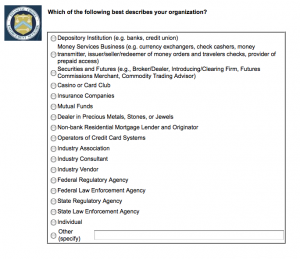The New Measure of DOJ Seriousness: The Charges It Defers
In an article on the upcoming HSBC settlement, Reuters seems impressed with the fine the bank may pay for the assistance it gave to drug gangs and terrorists and other crooks by laundering their money: $1.8 billion. It goes on to talk about “how big a signal” DOJ wants to send with this settlement.
The emphasis, of course, should be on that word “settlement.” One that will likely result in a Deferred Prosecution Agreement, in which no one gets charged, not even for the egregious conduct HSBC engaged in.
Because ultimately, Reuters is measuring this big signal by the seriousness of the criminal charges DOJ doesn’t file.
In regulatory filings, HSBC has said it could face criminal charges. But similar U.S. investigations have culminated in deferred prosecution deals, where law-enforcement agencies delay or forgo prosecuting a company if it admits wrongdoing, pays a fine and agrees to clean up its compliance systems. If the company missteps again, the Justice Department could prosecute.
[snip]
The agreements “have become a mainstay of white collar criminal law enforcement,” U.S. Assistant Attorney General Lanny Breuer said in September during an appearance at the New York City Bar Association.
“I’ve heard people criticize them and I’ve heard people praise them. DPAs have had a truly transformative effect on particular companies and, more generally, on corporate culture across the globe.”
If U.S. prosecutors agree to a deferred agreement, they still could wield a powerful legal tool by accusing the bank of laundering money.
That would be a much more serious charge than if prosecutors, in a deferred agreement, charged HSBC with criminal violations of the Bank Secrecy Act, a law that requires banks to maintain programs that root out suspicious transactions.
[snip]
A charge of money laundering would be a rare move by the Justice Department and would send a signal to other big banks that the agency is intent on cracking down on dirty money moving through the U.S. financial system. [my emphasis]
No, seriously. A legitimate report just said that DOJ will send “a signal” based on ratcheting up the seriousness of the crimes it makes disappear with one of Lanny Breuer’s flaccid DPAs. It will send “a signal” with the seriousness of the charges it will effectively excuse.
Heck. If we’re not going to really charge these banksters, why not add on murder or drug trafficking or terrorism charges, or any of the other crimes they abetted? That would really send “a signal” now, wouldn’t it, deferring even more serious charges that real people would do hard time for?
The Senate has already accused HSBC of money laundering. But mere accusations–even with promises to do better–do nothing.
No matter how serious a charge those accusations involve excusing.

